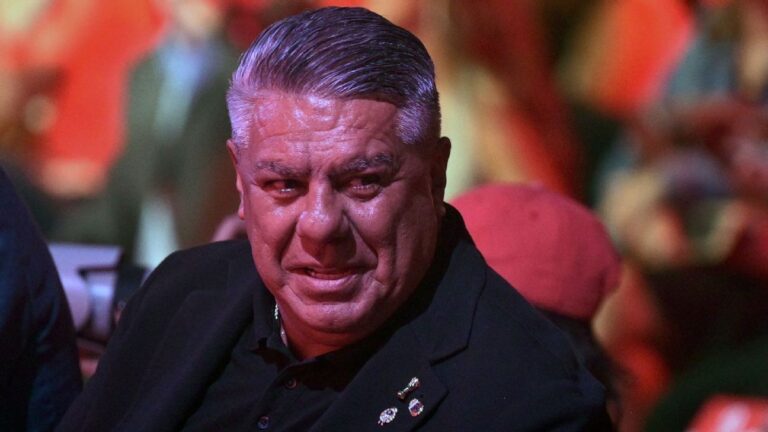European clubs should not be afraid of a player exodus to Saudi Arabia, UEFA president Aleksander Ceferin said on Sunday, suggesting the country was making a mistake investing in stars at the end of their careers.
Cristiano Ronaldo and Karim Benzema have been paid record-high contracts to join Saudi Arabian clubs this year, and similar offers were made to Lionel Messi and Luka Modric. They have combined to win every Ballon d’Or awarded since 2008, and all are at least 35.
– Stream on ESPN+: LaLiga, Bundesliga, more (U.S.)
More players are expected to follow after four top Saudi Arabian clubs were effectively nationalized this month when taken into majority ownership by the Public Investment Fund sovereign wealth operation chaired by Crown Prince Mohammad bin Salman.
Ceferin was asked by Dutch broadcaster NOS if he was afraid of a player exodus, and answered emphatically: “No, no, no.”
“I think that it’s mainly a mistake for Saudi Arabian football. Why is that a problem for them? Because they should invest in academies, they should bring coaches, and they should develop their own players.”
“The system of buying the players that almost ended their career is not the system that develops football,” he added. “It was a similar mistake in China when they all brought players who are at the end of their career.”
Didier Drogba was the star recruit to the Chinese league in 2012 as clubs there bought Europe-based forwards such as Nicolas Anelka and Frederic Kanoute. However, the Chinese league and men’s national team have made little progress internationally in the years since.
“Tell me one player who is top, top age and who starts his career and went to play in Saudi Arabia?” Ceferin asked during the interview on the sideline of the Nations League Finals hosted in the Netherlands.
“But it’s not about money only. Players want to win top competitions. And top competition is in Europe,” Ceferin said.
The UEFA president was asked if European football had lost some of its top attraction, but Ceferin offered a different perspective.
“We didn’t lose them. They still play football. At the end of their career, some players go somewhere to earn some money.”
Ceferin said UEFA are looking at rules to impose an overall cap on the budget for salaries and transfers for clubs that qualify to play in European competitions.
“Because we don’t want that two or three clubs who have unlimited resources come to a budget of €5 billion or €10bn,” he said. “Then our competition is not interesting anymore.
“Practically every club, everyone who I spoke with, agrees with that,” Ceferin said. “We are far from any decision; we are just thinking about it.”
It is unclear how UEFA can introduce such rules within European Union laws and different tax regimes across its 55 member federations. Salary caps have often been considered in the 15 years since European football officials shaped financial fair play rules to monitor clubs’ income and spending.
UEFA under Ceferin’s leadership has previously spoken of staging the Champions League final outside Europe, although he said that idea has not gone forward yet.
The next two finals will be in London and Munich.
“We didn’t even discuss moving out of Europe let alone be concrete as in Saudi Arabia or somewhere else,” Ceferin said. “For the future, I don’t give it a big chance that we go out.”




